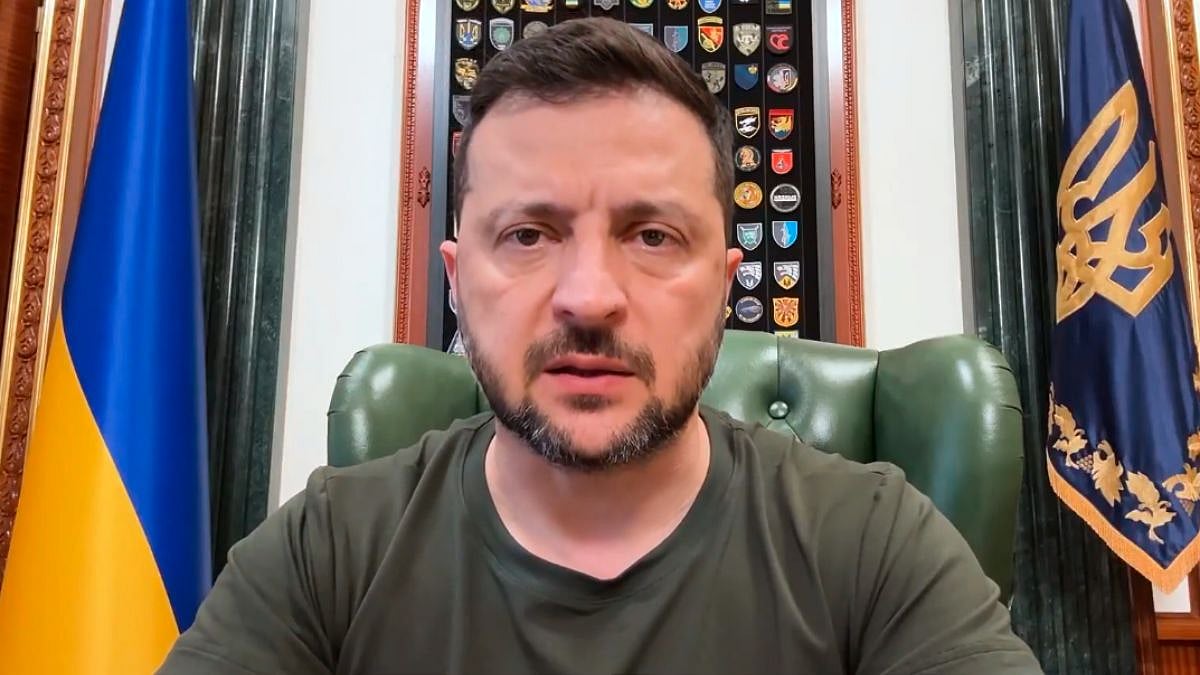Should G7 and EU Impose Tariffs on China and India for Buying Russian Oil?
Published: 2025-09-12 13:28:00 | Category: policy GNEWS Search
The U.S. Treasury has urged its G7 and EU allies to implement significant tariffs on goods from China and India to discourage their purchases of Russian oil, which are allegedly funding the ongoing war in Ukraine. This call to action comes as part of a broader strategy to increase pressure on Moscow and seeks a coordinated international response to the conflict.
Last updated: 26 October 2023 (BST)
Understanding the U.S. Call for Tariffs
The U.S. Treasury's recent appeal highlights the interconnectedness of global economies and the ripple effects of international trade on geopolitical conflicts. By targeting countries that continue to purchase Russian oil, the U.S. aims to diminish the financial resources available to support the war effort in Ukraine.
Key Takeaways
- The U.S. Treasury has called for meaningful tariffs on goods from China and India.
- These tariffs are intended to reduce Russian oil purchases by these nations.
- President Trump’s administration is advocating for a united G7 response.
- The U.S. claims that current purchases are prolonging the war in Ukraine.
- There is a suggestion that tariffs would be lifted once the war ends.
The Context of Tariffs and International Relations
Tariffs are taxes imposed on imported goods, making them more expensive and less competitive compared to domestic products. In this scenario, the U.S. is leveraging tariffs as a diplomatic tool to influence the behaviours of China and India regarding their energy purchases from Russia. The effectiveness of such measures can vary based on several factors, including the economic resilience of the targeted countries and their willingness to comply with international pressure.
Why Tariffs on China and India?
The U.S. Treasury spokesperson emphasised that the ongoing purchases of Russian oil by China and India are effectively funding the war effort led by President Vladimir Putin. This rationale is rooted in the belief that economic sanctions and tariffs can disrupt the financial flows that support military operations.
Both China and India have maintained their energy ties with Russia, even amidst international condemnation of the invasion of Ukraine. This has led to criticism from Western nations, which argue that these countries are indirectly contributing to the humanitarian crisis unfolding in Ukraine.
Implications of the Proposed Tariffs
If implemented, the proposed tariffs could have several implications:
- Economic Impact: Tariffs could lead to increased prices for consumers in the U.S. and allied nations, as imported goods become more expensive.
- Political Ramifications: This could strain diplomatic relations with China and India, who may view the tariffs as an overreach or an infringement on their sovereignty.
- Shift in Energy Markets: Countries affected by the tariffs may seek alternative energy suppliers, potentially reshaping global energy dynamics.
What’s New in the G7 Strategy?
The G7 finance meeting convened by the U.S. Treasury is part of a concerted effort to align the policies of the world's largest economies in response to the ongoing conflict. Historically, G7 meetings have focused on economic cooperation and stability; however, the current geopolitical climate has shifted the focus towards collective security and humanitarian concerns.
During these meetings, discussions are expected to revolve around:
- Coordinated sanctions against Russia.
- Strategies to limit the impact of Russian oil on global markets.
- Ways to support Ukraine economically and militarily.
The Role of Energy in Modern Warfare
Energy resources have always played a crucial role in warfare, and the current conflict in Ukraine is no exception. The ability of a nation to sustain military operations is heavily reliant on continuous energy supplies. As such, efforts to disrupt these supplies through economic measures like tariffs are seen as a legitimate avenue for exerting pressure on hostile nations.
Current Energy Dynamics
The dynamics of global energy markets have shifted significantly since the onset of the Ukraine conflict. Europe, in particular, has been seeking to reduce its dependency on Russian oil and gas. The U.S. has positioned itself as a key alternative supplier, increasing exports to European nations.
However, the reliance of countries like China and India on Russian energy complicates the situation. These nations have been purchasing crude oil at discounted rates, benefiting from the sanctions imposed on Russia by Western nations.
What Happens Next?
As the international community deliberates on the feasibility and potential impact of these proposed tariffs, several factors will come into play:
- Response from China and India: Both nations may respond with their own measures, potentially leading to a tit-for-tat tariff situation.
- Impact on Global Oil Prices: Any disruptions in oil supply chains could lead to fluctuating oil prices globally, affecting economies worldwide.
- Long-term Diplomatic Relations: The fallout from tariff implementations could redefine diplomatic ties between the U.S., China, and India.
Conclusion
The U.S. Treasury's call for tariffs on goods from China and India highlights the complex interplay between international trade, energy security, and geopolitical strategy. As nations grapple with the implications of these potential measures, the situation remains fluid, and the responses from the affected countries will be crucial in determining the next steps.
As the world watches how these dynamics unfold, it raises broader questions about the role of economic measures in modern conflict resolution and the responsibilities of nations in supporting peace and stability globally. How will countries balance their energy needs with the ethical considerations of supporting or opposing regimes involved in warfare? #Tariffs #EnergySecurity #GeopoliticalTensions
FAQs
What are tariffs?
Tariffs are taxes imposed on imported goods, making them more expensive and less competitive against domestic products. They are often used as a tool for economic policy and international trade negotiations.
Why is the U.S. targeting China and India?
The U.S. is targeting China and India due to their continued purchases of Russian oil, which are believed to be funding the war in Ukraine. The aim is to reduce these purchases through economic pressure.
What are the potential effects of these tariffs?
Potential effects of the tariffs include increased prices for consumers, strained diplomatic relations with China and India, and a shift in global energy markets as these countries seek alternative supplies.
How do tariffs impact international relations?
Tariffs can lead to tensions between nations, as they may be viewed as aggressive economic measures. They can also provoke retaliatory actions, complicating diplomatic relationships and negotiations.
What is the G7's role in this situation?
The G7 serves as a platform for the world's major economies to coordinate their responses to global issues, including geopolitical conflicts. The G7's unified stance can amplify the effectiveness of sanctions and tariffs.



